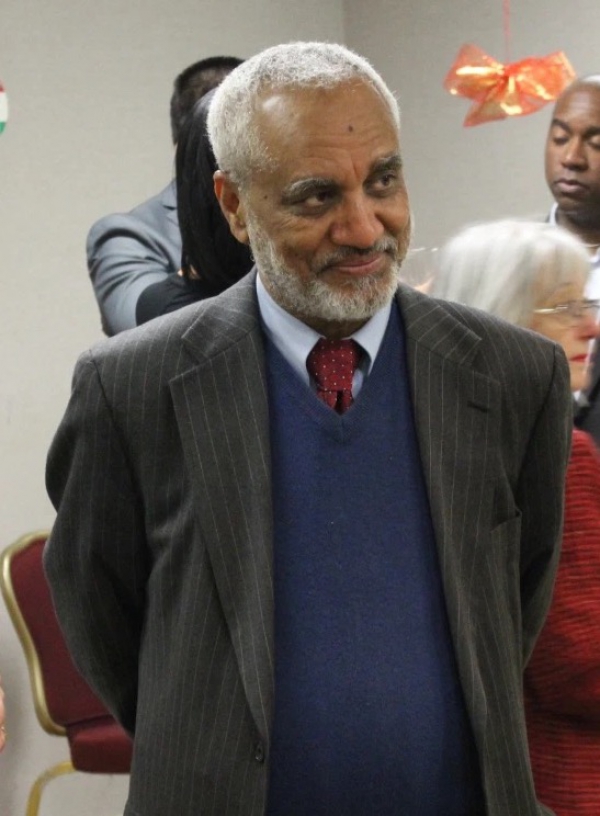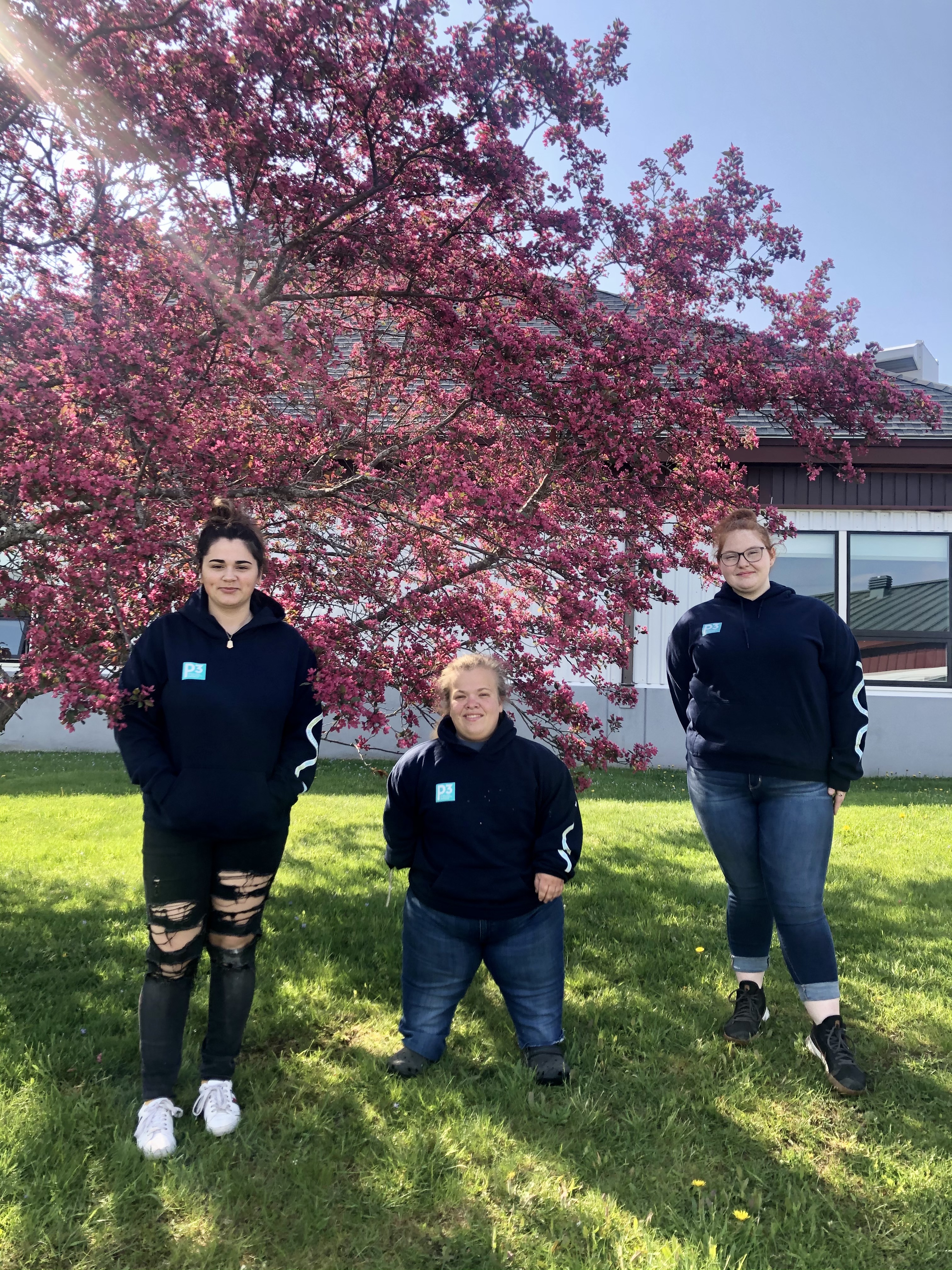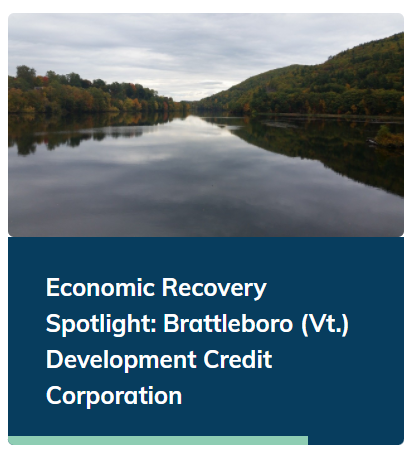
Reblog: With new base in Brattleboro, refugees could find new support
As a part of the Welcoming Communities initiative, the BDCC has been on the forefront of welcoming the Ethiopian Community Development Council to Brattleboro as they explore refugee resettlement in our region. See coverage of these efforts below by The Commons.
With new base in Brattleboro, refugees could find new support
The Ethiopian Community Development Council is exploring opportunities here, potentially bringing 75 refugees from multiple countries to the region by 2022 — a prospect that’s far from simple and that comes with challenges, notably housing
BRATTLEBORO—A national refugee resettlement group hopes Brattleboro will be the site of a new satellite office as well as home for up to 75 refugees from around the world by the new year.
As part of its Welcoming Communities program, the Brattleboro Development Credit Corporation (BDCC) has been facilitating efforts by the Ethiopian Development Community Council (EDCC) to help resettle refugees in more rural U.S. locations.
The town made the list of six new resettlement sites hoped for this year, two being rural.
“In expanding our services, we’re looking for an environment that will welcome refugees,” said EDCC founder Tsehaye Teferra (pictured above) from his Arlington, Va., home office.
“The Brattleboro Development Credit Corporation had already been looking to start a resettlement program in the [town]. We had a consultative meeting via Zoom with many stakeholders from the state and [town] and business community, and we found them very welcoming.”
Started in 1983, the EDCC is one of nine voluntary agencies that work with the State Department to resettle refugees in the United States. The group was started, said Teferra, to respond to “a growing need of Ethiopians in the U.S.” but since has broadened its scope to serve clients from more than 70 countries in Africa, Southeast Asia, the Middle East, and Latin America.
“From wherever refugees are coming,” Teferra said.
His group is still in the planning stage and has secured all needed approval letters locally as well as those from the state refugee coordinator, the Agency of Human Services, and the governor’s office.
All will be incorporated into an application to the State Department.
The group recently held a check-in with local stakeholders via a 50-person Zoom meeting.
The EDCC has 14 sites around the country and this year is proposing Brattleboro and five others: Syracuse, N.Y.; Portland, Maine; Indianapolis, Ind.; Wausau, Wisc.; and Anaheim, Calif.
It is hoped that Wausau and Brattleboro will also acquire EDCC branch offices, while the other municipalities will partner with existing organizations in those locations. EDCC branch offices today include those in Denver, Colo.; Las Vegas, Nev.; Silver Spring, Md.; and Arlington, Va.
The private nonprofit hopes to have State Department approval for resettlement here by September.
“If so, we are ready to start work in October,” said Teferra, adding it might take a few weeks or months to see the first arrivals.
Annually, the U.S. government admits refugees from around the world to be resettled in local communities. Although the Trump administration severely limited incoming refugees, the Biden administration has pledged to reopen the program and increase the number of refugees seeking safety in the U.S.
Those potentially emigrating to Brattleboro could be from many African countries, as well as Afghanistan and Burma, said Teferra. His organization will continue to work with the BDCC and other local groups to find housing and employment for those moving here.
Teferra said Afghanis may come to the U.S. directly from their home countries on special visas, due to the ongoing U.S. involvement with Afghanistan.
Otherwise, anyone seeking to become a refugee must be residing outside their home countries and be “processed from that country where they have been given refugee status.”
If approved, they would travel directly from that country to Vermont.
Teferra said he hasn’t visited Vermont, although he intended to do so before pandemic restrictions hit. He has a colleague, however, who was born in Vermont and will this week lead a delegation from ECDD to visit Brattleboro.
“I’m eager to visit,” Teferra said.
Eager partner on the ground
“It’s important because the BDCC and SeVEDS [Southeast Vermont Economic Development Strategies], our partner organization, have been looking at this for years,” said BDCC Welcoming Communities Program Manager Alex Beck.
“Welcoming new people to our community is something we’ve been doing for some time,” he said. “We created this initiative with some other folks throughout the county to support immigrants of all kinds.”
The Welcoming Communities program started in December 2020 as part of the Working Communities Challenge, a partnership between the Boston Federal Reserve and the state.
The competitive grant program aimed to fund “any transformational idea your community might have,” Beck said.
“We picked immigration, and develop[ed] systems throughout our region to support it,” said Beck.
He added that while the BDCC application was not a finalist, the state budget eventually funded all Working Communities’ teams.
The BDCC board also moved to support the initiative, standing behind its development when funding was far from secure.
“Between November 2020, when we didn’t get the [Federal Reserve] funding, and May, when the budget was finalized, the BDCC and our board funded the capacity for me, the Welcoming Communities manager, to continue to do research and for the team to continue,” Beck said.
“In doing research and more, we called resettlement organizations in New Hampshire, Vermont and Massachusetts to learn what it takes to succeed in this effort, how you prepare for that, and what does it look like.”
Through that outreach, the BDCC was introduced to the EDCC, with which “we’re working in really close partnership,” Beck said.
“We’ve helped connect them to all the folks locally they need to talk with to assess readiness,” he continued.
Beck noted that “the BDCC has all the data on employment and training,” as well as the information the EDCC needed to answer the questions on the application to the State Department.
Part of it, BDCC’s learning, was finding out “what worked and didn’t in other communities,” he said.
“What we have in rural communities is a few really strong organizations with a lot of capacity, and many with limited capacity, but we also have this incredible community of volunteers,” said Beck.
“What I think makes Brattleboro attractive for resettlements includes the fact that housing and child care groups are already meeting,” he added. “It’s not building things from scratch; it’s connecting the dots.”
Beck is also a graduate of the School for International Training (SIT) in Brattleboro. The school was established in 1964, but its roots connect to 1932 and the founding of the Experiment in International Living.
The Experiment aimed to improve understanding across cultures and nations by sending U.S. students abroad. The program sought to expand students’ worldviews by placing them to live with families in their communities.
In the early 1960s, Experiment alumnus and Peace Corps Director Sargent Shriver called on the program to conduct orientation and training for the earliest Peace Corps volunteers, according to a history of SIT on the institution’s website.
These training activities led to the establishment of SIT. Later, The Experiment’s Cooperative Overseas Program for university students evolved into SIT Study Abroad, growing to enroll more than 2,000 participants annually.
“SIT has attracted people like myself for decades, and a lot of us stick,” Beck said, noting he spent time in Africa, but ultimately decided to work on rural development and live in Brattleboro.
Anticipating hiccups
The state has long hosted worker relocation programs and regularly brings immigrant workers here. Stakeholders are aware that could be a sore point for some.
“We know the people moving to our state for economic opportunity are not all born in America, so there is a lot of pushback about why are we bringing certain people in. So that’s kind of where we’ve been on the ground, doing that work,” Beck said.
There are myriad aspects to successful resettlement, and the BCDD has taken time to explore them all.
“We know that if you’re part of the young professional community, we can connect you there,” said Beck. “And there are families with religious practices, so we need to know where they are. We know that a job isn’t enough. It’s not just pointing folks to where the Co-op is.”
Rather, he said, it’s “How do you make friends? Where do you find space to celebrate your culture and share that, if you want?”
Beck calls his group “the data nerds” around workforce and population issues.
“We know the only growing group here is non-white community members,” he said.
“We know that migration and immigration is good for our community and regardless of how or why people are coming here, they need support,” Beck said, adding the BDCC also does workforce development and high school career programming, “so we see this in a really intentional way.”
“I think that’s what EDCC sees in us as partners, and I think that’s what makes us natural collaborators,” Beck said. “We feel people who are surprised haven’t been listening, but a number of people are excited.”
“That’s what makes me feel good when I go to sleep at night,” he said. “I can’t see if people will come, but I do know there are so many folks in our community excited and ready to support it.”
Housing Trust and town government are all-in — but with eyes open
Brattleboro Town Manager Peter Elwell was part of the 50-person Zoom call, as were two Selectboard members and the town’ planning services director.
“We’re excited,” said Elwell. “We believe, from a workforce and economic perspective, these kinds of programs are important, and this particular one is in alignment with the town’s commitment to work with the community on matters of racial and cultural diversity and equity.”
The refugee program has “got both that humanitarian aspect as well as the practical economic development aspect, and we look forward to partnering to make it successful,” he said.
Elizabeth Bridgewater, executive director of the Windham & Windsor Housing Trust, also fully supports the refugee program but admits that “it’s a challenging situation.”
“I think it would be a wonderful thing for Brattleboro, and there are a lot of housing challenges that need to be addressed,” she said.
Bridgewater noted the town has one of the lowest housing availability rates in the state, plus her organization has data showing a “significant” increase in out-of-state real estate purchases — in southern Vermont, in particular.
“So an already-tight housing market just got tighter,” she said.
“How to balance those dynamics with the need to help folks that are experiencing unsafe conditions in other parts of the world is the central challenge of this opportunity,” Bridgewater said.
Despite the challenges, “communities with a group of immigrants are typically diverse,” she said. “There is often a lot of entrepreneurship, and it can be a very rich environment.”
Bridgewater periodically works with the Community Asylum Seekers Project (CASP) here and said that organization places folks as housing becomes available.
CASP helps provide basic needs and a supportive community for those seeking asylum in the U.S., including finding local host homes and supplying daily needs.
Since she had not heard of the EDCC project until the community Zoom call, Bridgewater is not yet sure how this aspect of placement will work if State Department approval for Brattleboro as a resettlement site is forthcoming.
Despite the potential challenges, Bridgewater is unwavering in her support and belief that a more diverse Brattleboro will make for a better Brattleboro.
“We have two board members from other parts of the world, and it’s such a rich perspective to have their voices at the table,” she said. “I just think our world is so global now, it would be a real benefit to have a global perspective here in Brattleboro.”



